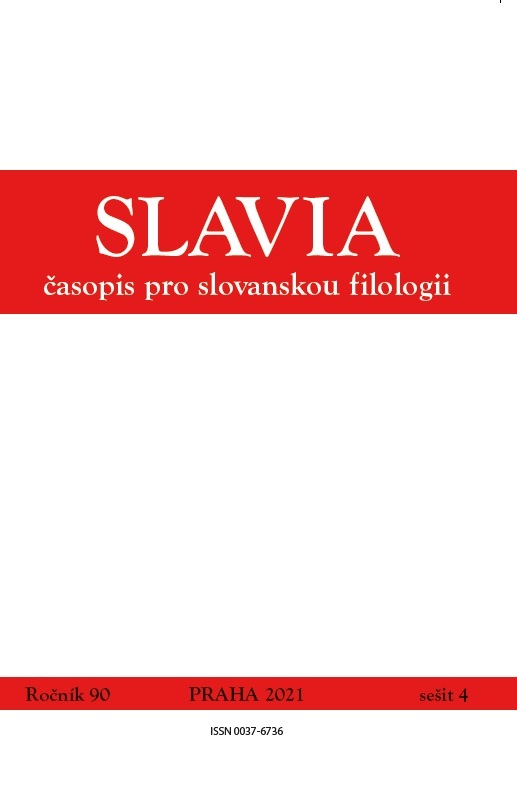English Cognitive Verbs and their Translation into Ukrainian: a Corpus-Based Approach
English Cognitive Verbs and their Translation into Ukrainian: a Corpus-Based Approach
Author(s): Svitlana Matvieieva, Nataliya Lemish, Alla ZernetskaSubject(s): Comparative Linguistics, Translation Studies
Published by: AV ČR - Akademie věd České republiky - Slovanský ústav and Euroslavica
Keywords: cognitive verb; translation shifts; parallel texts; corpus-based approach; quantitative calculations; Ukrainian; English;
Summary/Abstract: The paper deals with the English cognitive verbs selected from the novel Harry Potter and the Chamber of Secrets by J. K. Rowling and their translation into Ukrainian. The study data are represented by 35 cognitive verbs (875 entries in total). The authors’ classification of cognitive verbs covers 3 lexical and semantic groups of thinking, knowledge, and memory (with their further division into 8 thematic subgroups: (I) verbs of thinking include verbs of thinking process, deliberation, and reflection; verbs of intention to do something; verbs of expressing expectations; (II) verbs of knowledge – verbs of realizing, finding something out; verbs of certainty / uncertainty; verbs of knowledge acquisition; (III) verbs of memory – verbs of information memorizing and storing processes; verbs of finding and reproducing information stored in memory). The subject matter discovers the peculiarities of different ways of translation of the English cognitive verbs into Ukrainian. The results were received based on the corpus of two parallel texts (the original of the novel by J. K. Rowling and its translation into Ukrainian by V. Morozov). The obtained data allow to provide the translator with the ready-made solutions for rendering the English cognitive verb ‘to think’ into Ukrainian, which is proved by quantitative calculations within a corpus-based approach. The employment of a corpus-based approach outlines the algorithm of analysing a discrete language unit, using the procedure of sentences / abstracts alignment that enables a researcher to process all the possible contexts of this lexical / grammatical unit. The latter opens wide prospects for further analysis of the other cognitive verbs, as well as of any other language units.
Journal: Slavia - časopis pro slovanskou filologii
- Issue Year: XC/2021
- Issue No: 4
- Page Range: 453-476
- Page Count: 24
- Language: English

